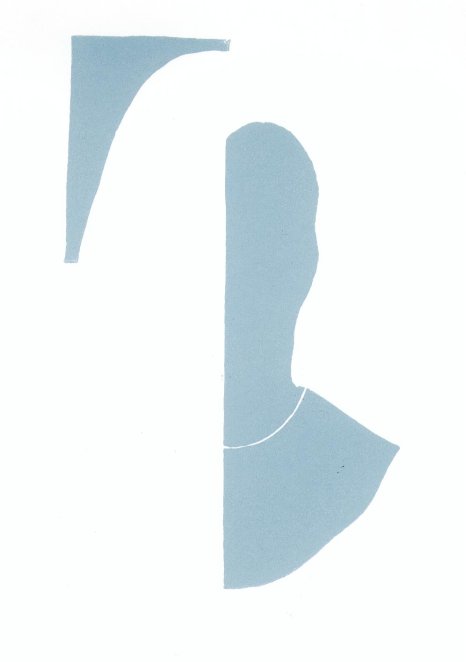The Wednesday workshop at the Curwen Print Study Centre was
drypoint, an intaglio technique (where the ink lies in the recesses you make)
that needs a press. Traditionally metal plates were used for this, but more
recent materials include Perspex as well as acetate, which is what we used. It’s
a certain grade of acetate which will produce a ‘burr’ along the lines that you
scratch in.
I particularly enjoyed this technique as it’s
very close to drawing – both my plates were based on sketchbook images of the
cat. Again, I went for a traditional figurative approach, but there were some
stunning abstract prints too. The great advantage of acetate is that you can
cut it up, rearrange elements and generally manipulate your image quite a lot. I’d
like to have a go at this technique again and be a bit wilder!
So you scratch your image into the acetate –
we used mounted needles. Sandpaper is good for texture. The marks can be quite
shallow, as the pressure of the press means that everything will print.
Intaglio ink is scumbled into the marks, and then you wipe the plate to take
off the excess ink. Any ink left on the surface will print as ‘plate tone’,
which you can control by wiping off more or less ink. You print onto slightly damp
paper. And of course, you can go back in to your plate and scratch away more if
you want to!
My first print:
My second effort was still figurative (cat
again), but a little bit more adventurous. The little circles at the bottom
were made by taking a ‘rubbing’ of a piece of Lego with sandpaper (there are
lots of possibilities here!). The actual cat was based on one of my contour
drawings, and the line was made using a drill (yes, they let me loose with a
drill!). The first print is a straightforward print, and the next uses the
chine collé technique, where tissue or other very thin paper is stuck to the
paper before the piece goes through the press.





.jpg)


























No comments:
Post a Comment